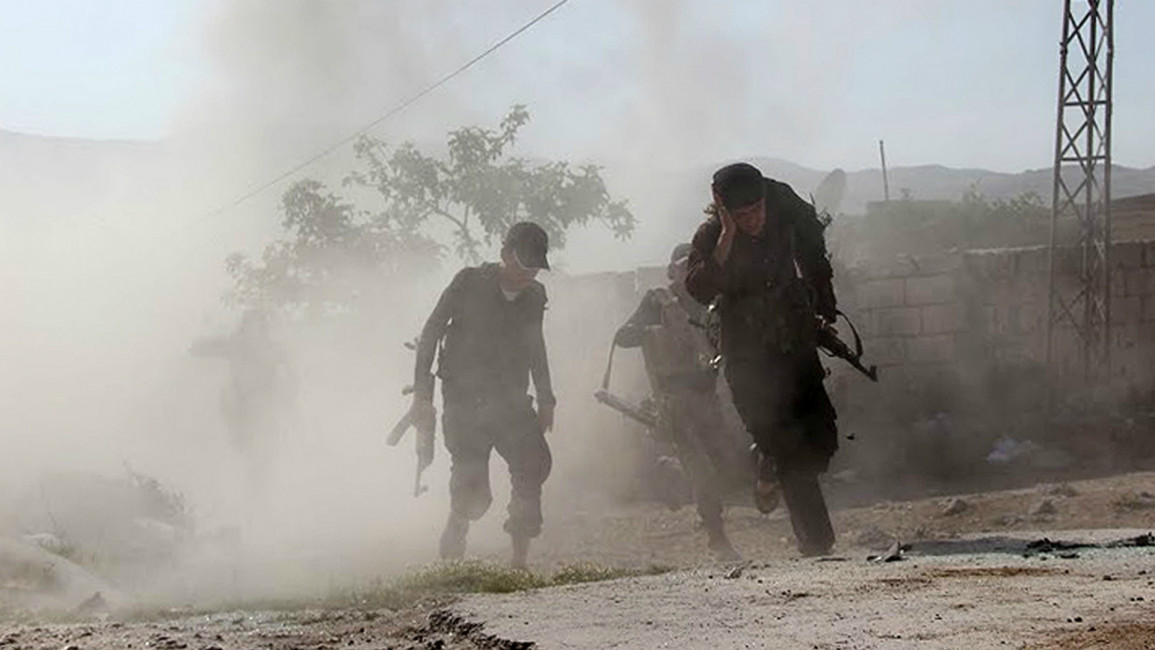
Crimes in the name of the revolution
They asked him what sect he belonged to, and when he told them he was an Alawite, they filled his body with bullets, killing him on the spot.
Had the man been captured by fighters avowing even the slightest adherence to the tenets of the Syrian revolution, he would have received a fair trial to establish his guilt or innocence.
The renowned television host, Faisal al-Qasem, dedicated a recent episode of his al-Jazeera TV show, The Opposite Direction, to discussion of the collective liability of Syria's Alawite community for the crimes of the regime.
The debate put the question: did they all deserve to be killed?
Prejudice and incitement
The preconceived notions and incitement against Alawites in the programme were severely alarming. This is a time when we need to reassure that community, instead of terrifying them to the point where they feel they have no choice but to fight to the last man.
But we need to do more than just dissociate the broad mass of Alawites from the regime, we need to connect them to the national struggle, allow them to participate as a core component and benefit from the struggle's nobler values, such as the right to life and freedom.
These rights should be afforded to all Syrians whether they are for or against the regime, because these rights constitute the basis of any national future that opposes sectarianism or prejudice based on religious, ethnic or group affiliation.
| Targeting Alawites means dragging the Syrian people into the war of extermination - which the regime planned all along. |
I'm not trying to trick the Alawites here, to try and get them to distance themselves from the regime only for them to be killed by a group of murderers in the name of the revolution.
What I'm saying is that targeting Alawites, a rooted segment of Syrian society, means the destruction of our country. It means dragging the Syrian people into the war of extermination - which the regime planned all along, but which was unable to achieve despite the horrific crimes that Syrians have committed against each other.
It would mean we are not worthy of freedom, that we lack the ability to build a country where people coexist in a spirit of rationalism, justice and equality.
Therefore, we would not deserve what we have come out to fight for: the freedom we have trampled on as soon as we got hold of a gun, exposing ourselves as criminals no different from the regime and its killers.
Does any rational person believe that terrorising the Alawites will result in the fall of the regime; that its supporters and defenders would abandon it to be killed in cold blood as soon as they reveal to which sect they belong?
Have our bonds as Syrians disintegrated to the point where we kill each other in the name of freedom and revolution - only for us to return to an age we claimed was behind us?
Today, we stand at a critical juncture in which our victory is tied to the extent to which we can avoid sectarianism and its ramifications, which have set our country ablaze and killed so many of our sons and daughters.
Will we soil all of the achievements and sacrifices we have made on our journey to freedom with our weapons, intellectual poverty and prejudices? Will we allow ourselves to squander all of our gains for the sake of revenge - against our own selves or against an unarmed captive?
Michel Kilo is a Syrian Christian writer and human rights activist.
Opinions stated in this article remain those of the author, and do not necessarily represent those of al-Araby al-Jadeed, its editorial board or staff.



